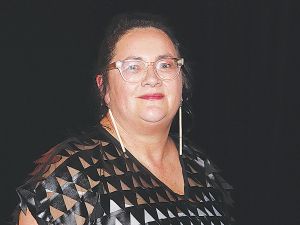Board upheaval at PGW
The board of rural trader PGG Wrightson Limited has agreed to call a special meeting demanded by its largest shareholder.
 Charlotte Severne has grave concerns about the Government’s “pricing of agricultural emissions” proposal and its likely impact on Māori landowners.
Charlotte Severne has grave concerns about the Government’s “pricing of agricultural emissions” proposal and its likely impact on Māori landowners.
The Māori Trustee says the Government response to the HWEN proposal on dealing with agricultural gasses will disproportionally disadvantage Māori landowners and doesn’t provide a solution for this inequity.
Dr Charlotte Severne is the chief executive of Te Tumu Paeroa, which administers as trustee 88,000 hectares of Māori freehold land on behalf of approximately 100,000 individual owners. She does not speak for other holders of whenua Māori, iwi, hapū or individuals, who lodged submissions of their own.
Severne says she has grave concerns about the Government’s “pricing of agricultural emissions” proposal and its likely impact on Māori landowners.
In her lengthy submission, Severne says while she recognises the need to reduce emissions, the proposed pricing system will disproportionately disadvantage Māori and she doesn’t think it is equitable.
Her submission points out the differences between Māori freehold and general land. Severne says the implementation of the present proposal will disadvantage the lands she administers, which are predominantly small, fragmented and individually uneconomic Māori holdings, often on marginal lands.
She adds that the large economic Māori whenua-based entities in her portfolio would also be disproportionately affected by increased compliance costs.
Severne’s submission expresses concern about the impact the proposal will have on rural communities, where Māori are often over represented.
“The proposal seems designed from a western point of view and doesn’t recognise the cultural value that Māori place on land, in addition to economic value,” she explains. “There is also concern that the measures seem more directed at large, economically strong farming operations, not those over-represented in the classes of land where whenua Māori is located.”
Severne says she also does not support the Government’s approach to recognising carbon sequestration, saying the reduction in categories of vegetation being recognised will disproportionately affect whenua Māori and whenua Māori landowners because of the exclusion of vegetation they currently have on their properties.
While Severne’s submission opposes much of the proposed policy, she does support the proposal to work with Treaty partners to understand ways to reduce the administrative burden of agricultural emissions pricing on whenua Māori agribusinesses.
Waikato dairy farmer Neil Bateup, made a companion of the New Zealand Order of Merit (CNZM) in the New Year 2026 Honours list, says he’s grateful for the award.
Another Australian state has given the green light to virtual fencing, opening another market for Kiwi company Halter.
Farmer interest continues to grow as a Massey University research project to determine the benefits or otherwise of the self-shedding Wiltshire sheep is underway. The project is five years in and has two more years to go. It was done mainly in the light of low wool prices and the cost of shearing. Peter Burke recently went along to the annual field day held Massey's Riverside farm in the Wairarapa.
Applications are now open for the 2026 NZI Rural Women Business Awards, set to be held at Parliament on 23 July.
Ravensdown has announced a collaboration with Kiwi icon, Footrot Flats in an effort to bring humour, heart, and connection to the forefront of the farming sector.
Forest & Bird's Kiwi Conservation Club is inviting New Zealanders of all ages to embrace the outdoors with its Summer Adventure Challenges.